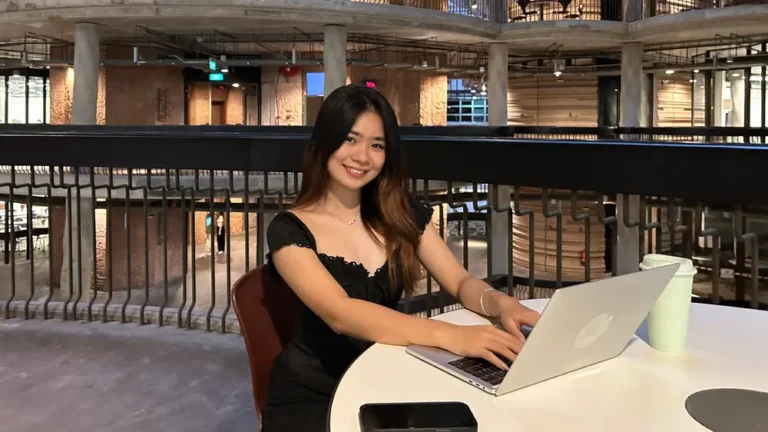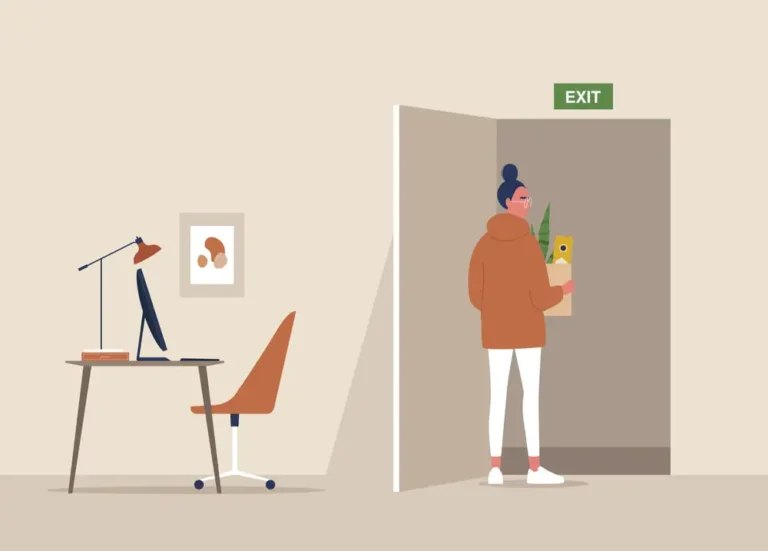How a Gen Z immigrant went from paycheck to paycheck to financial independence by turning her shoe collection hobby into a 7-figure business
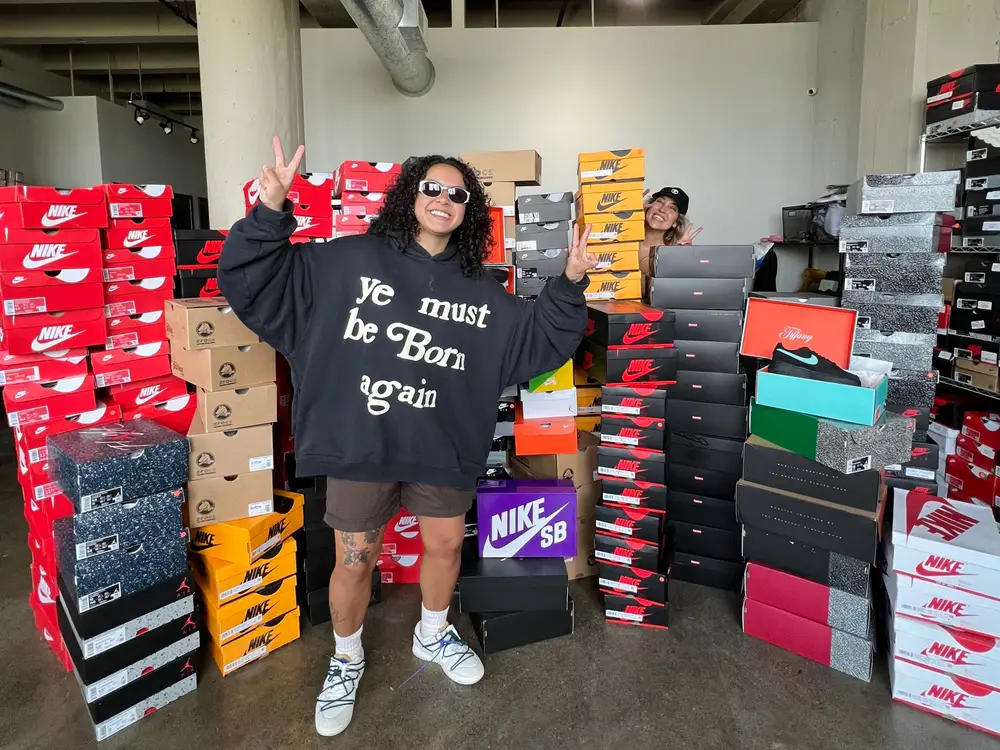
Val Zapata turned her sneaker-collecting hobby into a seven-figure business.
In the midst of the Covid-19 pandemic, Val Zapata was feeling the heat at work.
As a life insurance broker, “things were getting really tricky,” she told B-17. “People needed their insurance policies but weren’t paying them, some people weren’t prioritizing them, and I was in a lot of chargebacks.”
She was in her early 20s, living at her parents’ home in Houston, and stressed. Her girlfriend noticed and encouraged her to pick up an old hobby: sneaker collecting.
“She was like, ‘You always talk about how much you love sneakers and reminisce about this thing you did with your dad. What if you do it as a hobby to decompress a little bit?'” recalled Zapata, who used to wait outside Foot Locker with her dad in the early hours of the morning on big sneaker release days. “My dad would do anything with me when I was little.”
Her dad couldn’t always afford to buy her a new pair of Nikes, “but when we wanted something, he would do anything to figure it out,” she said. That’s how the sneaker-flipping hobby came about. “He would be like, ‘OK, you want one of these sneakers? Let’s buy five of them, sell them, collect that $30 or $40 or $50 profit, and then we’ll buy you your pair.'”
As a car dealer, “he loved buying and reselling things,” she added. Turns out, it ran in the family.
Reconnecting with sneaker-flipping during Covid — and turning the hobby into a side hustle
The early pandemic was an ideal time for Zapata and her dad to settle into their old routine.
“We were both stuck at home,” she said. “So we started driving all over Texas buying sneakers and making $10, $20, $30.”
They sourced shoes on Facebook Marketplace, which Zapata describes as “an online garage sale,” and OfferUp — or, “the magic cheat code.”
Collectors and resellers can find a treasure trove of deals on these sites. The typical seller is a regular person looking to make some extra cash on an item that’s been sitting around the house for years, she explained: “There’s the everyday family, mom, or dad who wants to sell something to buy a PS5 or wants to sell this because maybe their rent is low this month, whatever it might be. So you would find these really, really high-end sneakers — like, $1,000 sneakers — on there for $150.”
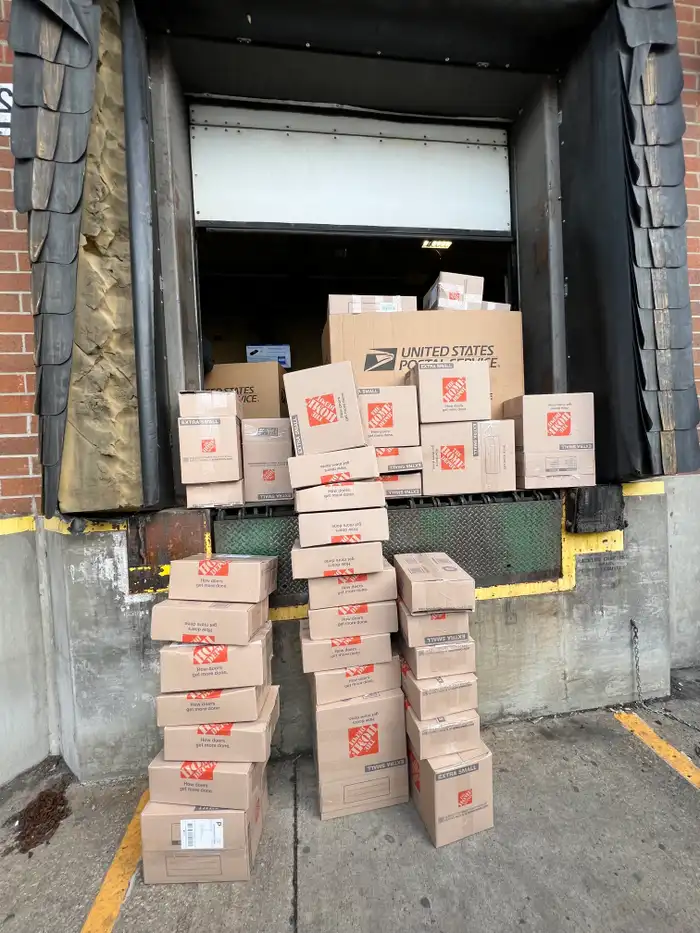
One of Zapata’s biggest expenses is boxes.
Zapata immigrated from Colombia as a kid, grew up in New York and Texas, and didn’t go to college. She used online resources to learn how to scale her business.
“I learned everything about resale on YouTube for free,” she said. She found and followed major players in the industry — two of her favorite channels are Rare Kiqs and Common Hype — and paid attention to what types of sneakers they were buying and what they were passing on.
One piece of advice stuck with her: “Connections over profits. Grow your connections so people will always sell to you.”
In 2021, she created an Instagram account, The Shoe Game Co., and gradually ramped up her side hustle.
“We started selling five or 10 sneakers a day, and then I just started doing basic math,” said Zapata. “I was like, ‘If I make, on average, $30 a sneaker right now and I have almost no overhead — I live with my parents for free, I only pay for the box if I have to ship it, and gas if I have to drive — how do I make five grand a month? How many sneakers do I need to sell a week? Can I do $10,000?'”
Scaling to seven figures using the live-selling platform Whatnot
Zapata first heard about a platform called Whatnot when one of the creators she followed on YouTube ended a video saying, “Catch us on Whatnot!”
“I’m like, ‘What is Whatnot?'” she recalled. “I’m obviously going to go catch them on Whatnot.”
Zapata downloaded the app and learned that it’s a marketplace that allows sellers to host live shows and sell products in real time. She joined a show, and it was unlike anything she’d ever experienced.
“It was crazy. There were shows that were happening with 600, 700, 800 people. People were buying things in under three seconds,” she described. “It was like Facebook or Twitter met eBay. It was so much fun when I started watching, and I was like, ‘Oh man, I would be really good at this. This is totally my personality.'”
She applied and got approved to sell on the platform, but didn’t start hosting shows immediately. She shadowed a friend who was also starting to do live Whatnot shows.
“It was like a crash course of what to do and what not to do,” said Zapata.
Still, her first show was “mayhem” — and not profitable. “I made like 50 bucks. I was probably negative after the boxes. When I ran the numbers, I was like, ‘Oh my God, it took me forever to find these sneakers.’ I think I might have even cried.”
Her dad encouraged her to stick with it, comparing it to his industry.
“My dad knows that an F-150 in Houston is going to get the most activity, whereas, you might not get that same activity in Nevada. He’s like, ‘You’re going to figure out what they want, what they don’t want, and what they will bid for,'” said Zapata. “Slowly but surely, we started making 3%, 4%, 5%, and then one day we made 15% And then one day we sold $25,000 in a day.”
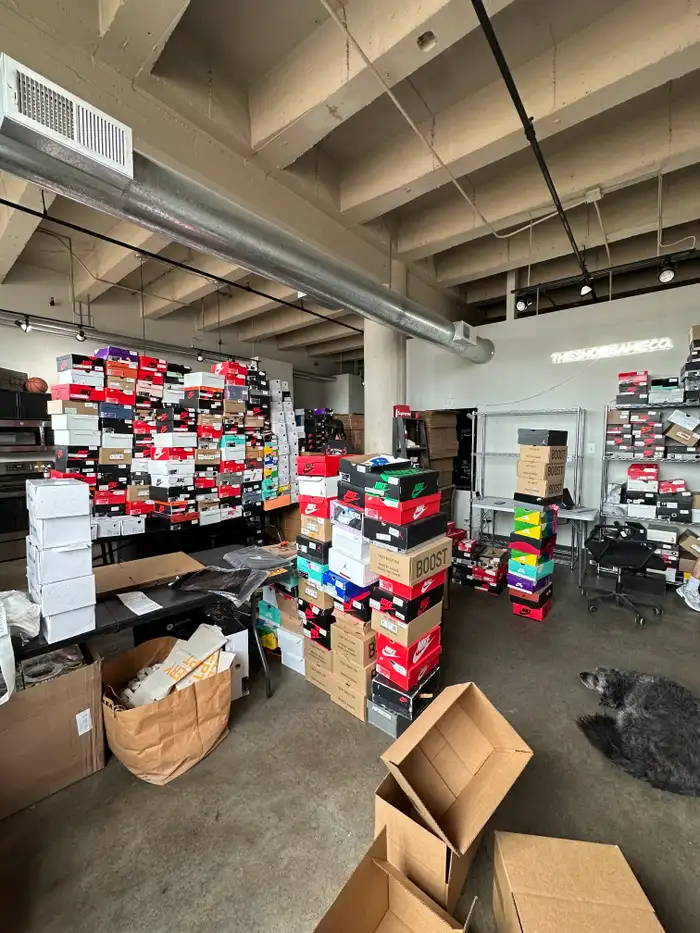
Zapata has a 6,000-square-foot warehouse space in Las Vegas.
The majority of her sales now come from live Whatnot shows. In the beginning, she was hosting daily. She and her dad turned the game room of their family home into her studio.
“We’ve gotten a little techier now, but at the time it was just my iPad, so I could see the chat, and my iPhone, so the chat could see me,” said Zapata. “I had a little desk ring light. It was probably 15 bucks on Amazon. The backdrop was a couple of racks of sneakers.”
While her current streams are shorter one- to two-hour “power hours,” in her first few months on the platform she’d go live for multiple hours at a time. “I would wake up so fried from eight or nine hours of really high intense energy, because we bring the show, and my dad would have set the stream back up, my background would be perfect, and that was just his way of continuing to encourage me.”
After just one month on Whatnot, Zapata says she did enough in sales to quit her insurance job in September 2022.
Two years later, as of September 2024, she leads a team of eight employees, including her sister, who streams for The Shoe Game Co. in Houston. Zapata moved to Las Vegas in early 2024 and rented a 6,000-square-foot warehouse to store product.
Her company has expanded to offering streetwear and has brought in up to $500,000 in sales a month. B-17 viewed her Whatnot seller dashboard and confirmed that her business has generated over $4 million in sales so far in 2024.
“This year, we’re gunning for a million-dollar-a-month business,” added the 27-year-old, who says her life looks completely different than it did just a few years ago. “I was living at my parents’ house for free. I now have this beautiful home in Vegas. I have a big warehouse. I actually have savings now.”
Don’t underestimate the power of a hobby, she added: “Whatever time you can dedicate to a hobby, even if it’s a couple of hours a day, that will pay off so much more than the eight or nine or 10 hours you’re giving to your 9-to-5.”

